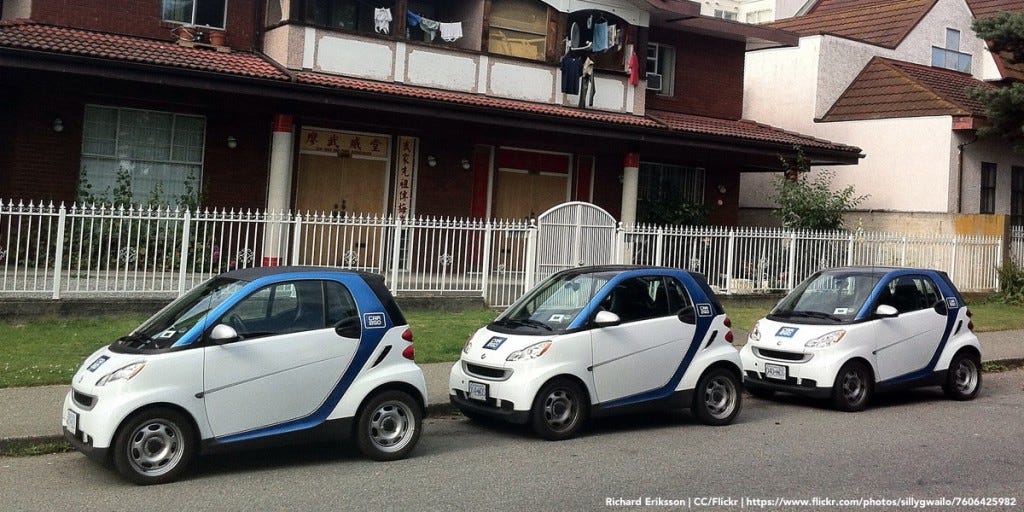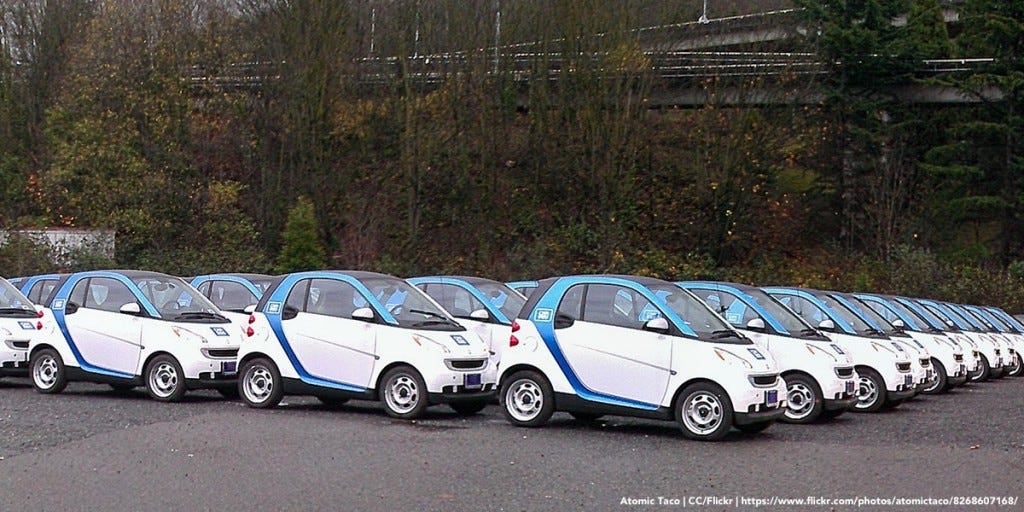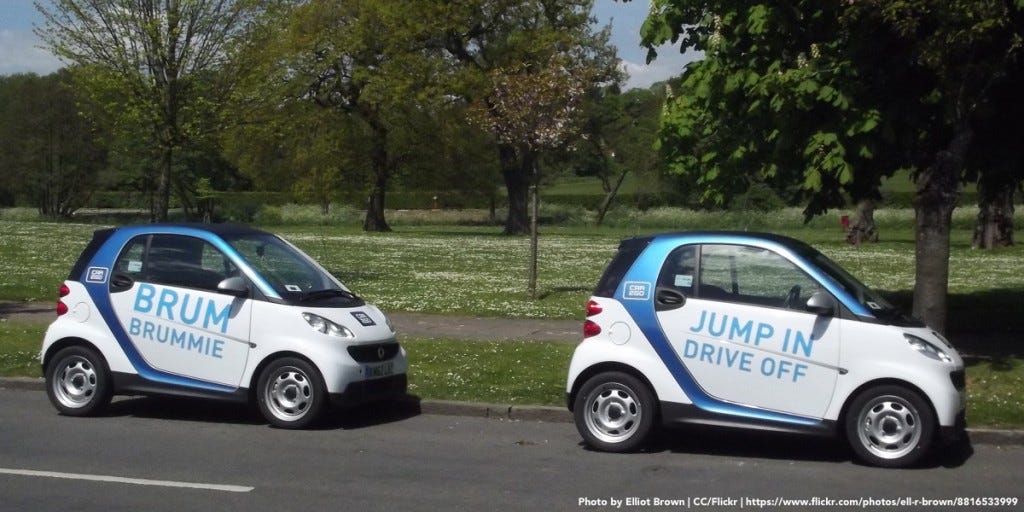Car Sharing Bill Goes Before Honolulu City Council

Honolulu consistently ranks among the nation's worst cities for commuters, so it's no surprise that there are many plans out there to bring relief. The biggest, most visible effort remains the city's beleagured rail transit project, but down on the ground, the "sharing economy" is making progress. Case in point: the evolution of car sharing in Honolulu.
Car sharing makes intuitive sense. Most of the tens of thousands of cars that clog our roadways are carrying one person to work in the morning, and carrying that same person home in the evening. For the eight or more hours in between, that car just sits, empty and unused. A lot of the time, people understandably cling to their private cars for those few occasions each month or each week when they need to run a mid-day errand. Meanwhile, many households have a second car that is often also kept around just for random, short trips.
Car sharing lets several people use a single car, only when they need it. And the best car-sharing programs make it incredibly easy to hop in, run an errand, and hop out. The more convenient it is, the more likely car owners will consider using other options like mass transit for their primary commute, or even consider giving up that second car.
Car sharing is not to be confused with ride sharing, which has recently hit some potholes in Honolulu. Although there have always been car-sharing schemes among neighbors and groups of friends or coworkers, commercial car-sharing operations have taken hold around the world, including on Oahu. They're basically short-term, membership-based car rental programs.
Back in 2010, a pair of local entrepreneurs tried to give the idea a go with GreenCar Hawaii, but it may have been too early to find traction. Built upon a solid, traditional rental car business, Enterprise CarShare has been has been operating here since 2012, beginning with four hybrid vehicles based at the University of Hawaii's Manoa campus, and expanding last year to Waikiki and downtown Honolulu. And network operators like RelayRides lets individual car owners rent out their private cars.
But now, one of the biggest players in the car-sharing space is set to launch in Honolulu.
Car2Go is a subsidiary of Daimler AG, the German automotive giant. The car-sharing service, which uses Daimler's distinctive SmartCars, operates in 30 locations around the world, and got its U.S. start in Austin. The company signaled its interest in the Honolulu market over a year ago, and the local launch was made official in January. They also hired a local manager: Aaron Landry, a friend and fellow web geek.
All systems are pretty much go, with one last goal: support from the City & County of Honolulu.

The biggest hurdle for any car-sharing service is the availability of parking spaces. And for car sharing to work well, those parking spaces need to be conveniently located and always readily available. In Honolulu, where every square foot is priced at a premium, this is no small thing. Up until now, car sharing operators have had to work out deals with private landowners and parking lot operators.
In the weeks leading up to the Car2Go launch, however, Aaron has been busy meeting with community leaders and making presentations to neighborhood boards across Oahu. And there is a bill coming up before the City Council this week to give car-sharing companies more solid footing to operate in Honolulu. Bill 24 [PDF], which amends the public transit section of city ordinances, will give car-sharing companies like Car2Go access to some city-controlled parking (in both off-street lots and on-street metered spaces).
"In short, Bill 24 establishes a framework for car-sharing companies to operate in Honolulu," explains Liberty Peralta, newly minted Community Marketing Manager for Car2Go and also a friend. "This includes decals and the ability for companies like car2go to pay the City and County for off-street stalls.
"It also sets compensation from car-share companies to the C&C for allowing car-share members to use on-street, metered parking," she adds. "That way, car-share members won't have to worry about feeding meters."
The bill sets annual fees for a reserved car-sharing parking stall at $1,500 and for stickers that allow car-sharing vehicles to park in metered spaces at $1,000, or 80 percent of the average hourly on-street parking meter rate in the area, whichever is greater. The fee for car-sharing stalls near a rail transit station, however, will be half that.
Liberty notes that cars from car-sharing services usually circulate much faster than privately owned vehicles, meaning those parking stalls will more frequently become available to other drivers.
Bill 24 passed its first reading on April 1 and is scheduled to go before the full council on Wednesday, April 22. Liberty and Aaron are asking supporters to submit testimony by tomorrow. Most of the testimony submitted so far is in support, although Joslyn Bantilan of Enterprise Holdings (which operates Enterprise Rent-A-Car and Enterprise CarShare) is asking the council [PDF] to ensure that the fee schedule "does not favor one business model over another."
For more information, you can follow Aaron on Twitter at @s4xton and Liberty at @libz. Eventually, they will fire up the @car2gohonolulu account.





